Lying is a common behavior among individuals struggling with substance abuse. Whether it’s hiding the extent of addiction, making excuses, or deceiving loved ones to obtain drugs or alcohol, lying often becomes second nature. However, once a person enters recovery, breaking the habit of lying is crucial to building an honest and fulfilling life.
At West Coast Detox, we understand that habitual lying can be one of the most challenging patterns to change in recovery. However, honesty is the foundation of lasting sobriety. Learning to embrace truthfulness will not only strengthen your relationships but also improve your self-esteem and reinforce your commitment to recovery.
Understanding the Connection Between Addiction and Lying
Many people in addiction develop a pattern of dishonesty as a coping mechanism. This habit forms for several reasons:
1. To Hide Substance Use
Addiction often leads individuals to deceive loved ones about their drug or alcohol use. They may lie about how much they drink or use, where they’ve been, or what they’re doing to avoid confrontation or judgment.
2. To Avoid Consequences
Lying allows individuals to escape accountability. Whether it’s calling in sick to work when hungover or making up excuses to avoid social obligations, deception provides a temporary escape from responsibility.
3. To Manipulate Situations
Addiction often drives individuals to manipulate friends, family, or employers to enable their substance use. They may exaggerate situations, create false stories, or withhold the truth to gain financial support or sympathy.
4. To Protect Themselves from Shame and Guilt
Addiction is often accompanied by deep feelings of shame and guilt. Lying can become a defense mechanism to protect oneself from facing painful truths.
Breaking the habit of lying in recovery is essential for personal growth, trust-building, and maintaining long-term sobriety.
The Importance of Honesty in Recovery
Lying creates a cycle of guilt, shame, and isolation, which can ultimately lead to relapse. On the other hand, honesty promotes self-awareness, accountability, and stronger relationships. Here’s why truthfulness is vital in recovery:
1. Rebuilding Trust
Substance abuse damages relationships, and habitual lying is often at the root of broken trust. Honesty is the only way to repair relationships with loved ones and rebuild the trust that was lost during active addiction.

2. Strengthening Your Recovery Program
Recovery programs like 12-step groups, therapy, and outpatient treatment rely on honesty. Being truthful with sponsors, counselors, and peers allows you to receive the support and guidance necessary for growth.
3. Developing Self-Respect
Lying can erode your self-esteem, making you feel like you’re constantly hiding who you are. By committing to honesty, you cultivate self-respect and develop a stronger sense of identity.
4. Avoiding Relapse
When individuals lie in recovery, they may begin deceiving themselves about their ability to handle certain triggers or environments. This false confidence can lead to relapse. Honesty keeps you accountable and encourages seeking help when needed.
Get Your Questions Answered
Reach out today to get the answers you need about drug and alcohol detox. Our compassionate team is here to guide you through every step of the process and help you take the first step toward recovery.

Steps to Overcome Habitual Lying in Recovery
Breaking the cycle of dishonesty takes effort, but with commitment and practice, it is possible. Here are some steps to help you develop a more truthful way of living:
1. Recognize When and Why You Lie
The first step in overcoming habitual lying is recognizing when and why you do it. Start by asking yourself:
- Do I lie to avoid conflict?
- Do I lie to make myself look better?
- Do I lie out of fear of judgment or rejection?
- Do I lie to protect my addiction or past mistakes?
Understanding the motivations behind your dishonesty will help you address the underlying issues fueling this habit.
2. Practice Self-Honesty
You cannot be honest with others until you are honest with yourself. Self-honesty means:
- Acknowledging past mistakes and wrongdoings.
- Accepting responsibility for your actions.
- Recognizing when you are making excuses or justifying harmful behaviors.
By practicing self-honesty, you lay the groundwork for truthfulness in all areas of your life.
3. Commit to Transparency in Recovery
If you’re involved in a recovery program, such as Alcoholics Anonymous (AA) or Narcotics Anonymous (NA), you’ll find that honesty is a central principle. Share your struggles openly with your sponsor, therapist, or support group. Transparency helps you stay accountable and prevents the temptation to revert to old behaviors.
4. Pause Before Speaking
Many lies are told impulsively. Before speaking, take a moment to ask yourself:
- Is what I’m about to say true?
- Am I trying to manipulate or avoid responsibility?
- Would I feel guilty if someone found out I wasn’t telling the truth?
Taking this pause can help you choose honesty over deception.
5. Own Up to Lies Immediately
Breaking the habit of lying doesn’t mean you’ll never slip up. If you catch yourself being dishonest, correct it as soon as possible. Admitting the truth immediately demonstrates personal growth and strengthens your commitment to honesty.

6. Make Amends for Past Lies
Making amends is an essential part of recovery. If your dishonesty has hurt others, acknowledge your past lies and take steps to repair the damage. This could involve:
- Apologizing to those you’ve deceived.
- Being open about your struggles with honesty.
- Demonstrating through actions that you are working to be more truthful.
Making amends not only helps repair relationships but also allows you to release guilt and move forward.
7. Surround Yourself with Honest People
The people you associate with can influence your behavior. If you spend time with individuals who lie, exaggerate, or manipulate, it’s easier to fall back into old habits. Instead, surround yourself with people who value honesty and integrity.
8. Seek Therapy and Support
Therapy can be a powerful tool in addressing habitual lying. A therapist can help you:

- Understand the root causes of your dishonesty.
- Develop healthier communication skills.
- Build confidence in telling the truth.
Support groups also offer a judgment-free space where you can practice honesty and receive encouragement from others on the same journey.
9. Celebrate Your Progress
Changing ingrained habits takes time and effort. Celebrate your small victories along the way. Whether it’s telling the truth in a difficult situation or admitting a mistake without hesitation, recognize and reward your progress.
Final Thoughts: Choosing Honesty Every Day
Honesty is a choice you make every day. While breaking the habit of lying in recovery isn’t easy, it is essential for building a stable, fulfilling, and sober life. At West Coast Detox, we believe that honesty is one of the most powerful tools for lasting recovery.
If you or a loved one is struggling with substance abuse and the challenges of honesty in recovery, our team is here to help. Through detox, counseling, and support programs, we provide the guidance and tools needed to break unhealthy patterns and embrace a life of truth and healing.
Reach out to West Coast Detox today and take the first step toward an honest and lasting recovery.























